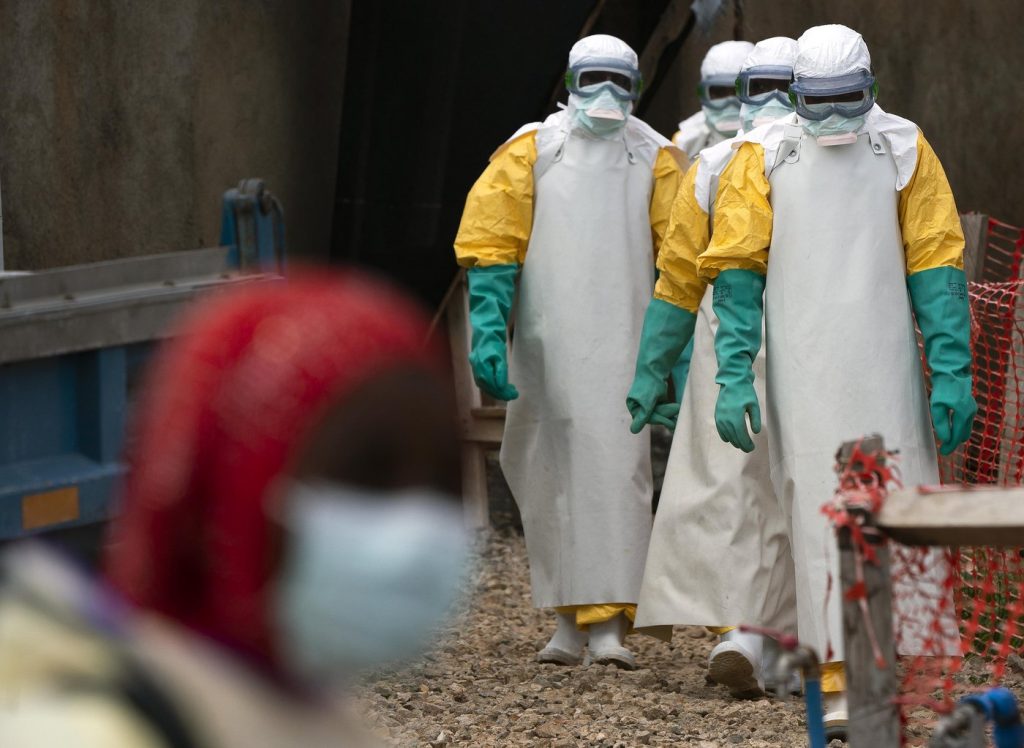GOMA, Congo (AP) – Authorities in Congo recently declared a new outbreak of Ebola that has claimed more than a dozen lives in the southern province of Kasai. The presence of the Zaire strain, the most virulent strain of the Ebola virus, was confirmed following analysis of samples at the National Institute for Biomedical Research in Kinshasa, the country's capital. This announcement comes amid intensified fighting in the eastern regions and a health care system that has been weakened by cuts in U.S. aid.
The Ebola virus is known for its high contagion rate, transmitted from wild animals to humans, and spreading further through contact with bodily fluids like blood, vomit, or semen, as well as contaminated surfaces. Ebola presents as a severe illness often resulting in fatalities, with symptoms including fever, vomiting, diarrhea, muscle pain, and sometimes both internal and external bleeding. The virus was first identified in 1976 near the Ebola River in what is now Congo, with initial outbreaks occurring in remote Central African villages close to tropical rainforests.
The current outbreak was confirmed after the first case of a 34-year-old pregnant woman in Boulapé, situated in Mweka territory of southern Kasai province. She was hospitalized last month due to symptoms of hemorrhagic fever and passed away a few hours later due to multiple organ failure. Authorities confirmed that the outbreak has potentially led to 15 deaths among 28 symptomatic individuals, including four health workers. With a fatality rate estimated at 53.6%, Health Minister Samuel-Roger Kamba emphasized the seriousness of the situation.
The World Health Organization (WHO) has warned that case numbers are likely to continue rising due to ongoing transmission. In a statement, the organization indicated that response teams will actively seek out individuals who may be infected and provide care to ensure swift protection for the community. Dr. Jean Paul Mikobi, chief medical officer of the Boulapé health zone, expressed concern that a possible surge in cases could occur as many residents have evacuated their villages out of fear of contamination, making it challenging to track and monitor the ill. Dr. Amitié Bukidi, head of the Mweka health zone, stated that suspected cases have emerged across all four health zones within the territory.
Congo's previous Ebola outbreaks have seen varying degrees of severity; the last outbreak in northeastern Equateur province in 2022 resulted in six deaths. An earlier outbreak from 2018 to 2020 in eastern Congo led to over 1,000 fatalities, following the devastating 2014-2016 outbreak in West Africa, which claimed over 11,000 lives. The existing volatile security situation and significant community mistrust have severely hindered efforts to control the epidemic, particularly in eastern Congo, where treatment centers have faced repeated attacks.
To contain the virus's spread, health officials have urged adherence to preventive measures, including social distancing and hand hygiene. In response to the outbreak, the WHO dispatched experts to Kasai province to enhance disease surveillance, treatment, and infection prevention measures in local health facilities. Supplies, including personal protective equipment, mobile laboratory equipment, and medicinal interventions, are being delivered to support containment efforts. The government also possesses a stockpile of Ebola treatments and the Ervebo Ebola vaccine, as stated by the WHO.
Experts from the National Institute of Biomedical Research have been deployed to the Mweka health zone to establish a mobile laboratory for onsite testing of patient samples. However, challenges persist, particularly in the form of personnel shortages and the need for more personal protective equipment, according to Dr. Bukidi. In light of the outbreak, Francois Mingambengele, the Mweka territory administrator, has enacted partial confinement measures that include suspending classes and graduation ceremonies, as well as closing weekly markets.











